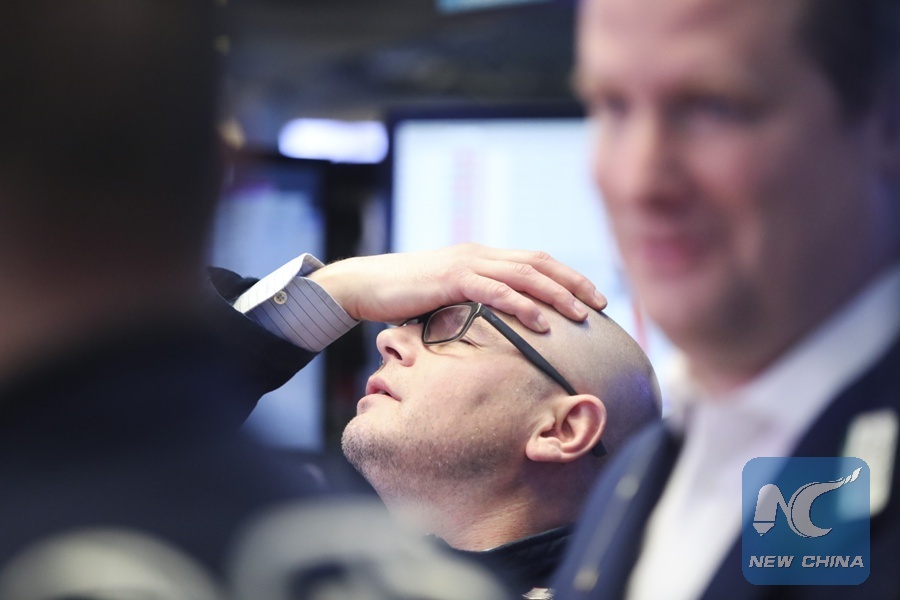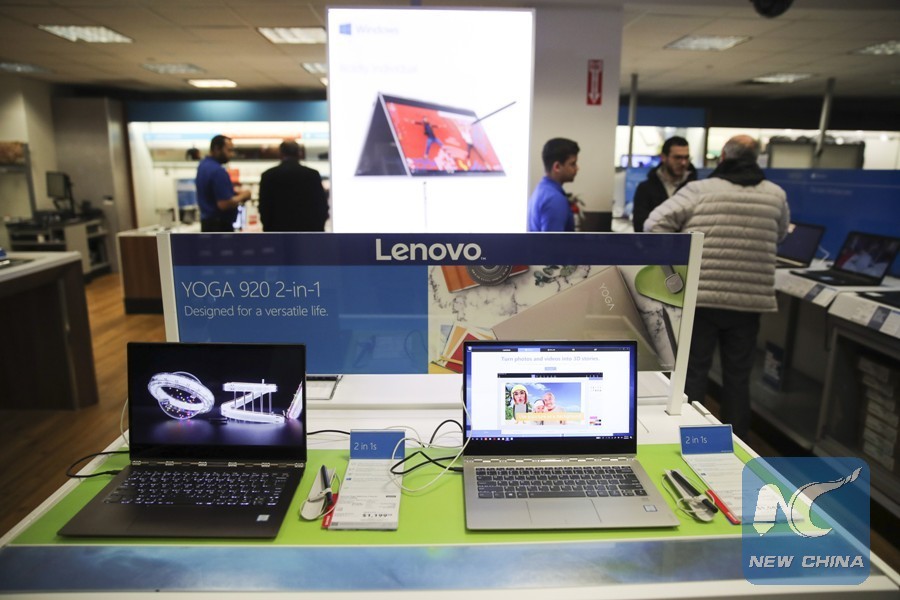
A trader has a rest after market closing at the New York Stock Exchange in New York, the United States, March 22, 2018. U.S. stocks ended lower on Thursday, with the Dow plunging over 700 points, after the U.S. President Donald Trump announced to impose tariff on imported products from China. (Xinhua/Wang Ying)
NEW HAVEN, United States, March 22 (Xinhua) -- U.S. President Donald Trump's tariffs are "counterproductive" to the American economy, said Paul Kennedy, a history professor at Yale University.
Trump has taken a simplistic view of the trade relationship, the 72-year-old Kennedy told Xinhua in an exclusive interview on Thursday. He is best known for his 1987 epic book "The Rise and Fall of the Great Powers."
NO SIMPLE WIN-LOSE GAME
Despite strong warnings from trade experts, Trump on Thursday signed a memorandum that could impose tariffs on up to 60 billion U.S. dollars of imports from China, the latest unilateral move that poses a threat to global trade.
The move follows Trump's recent tariff plan on steel and aluminum imports and January's tariffs levied on imported solar panels and washing machines, which have been chided by business groups as an act of protectionism.
"The simplistic view of a win-lose in an economic, visible trade of goods would be derided by every economist we know, even by Republican economists," said Kennedy, commenting on the decision of the Republican-backed president.
The Yale professor pointed out that, following Trump's logic, China's trade surplus with the United States is because "the Chinese are selling more to us then we're selling to them."
But the tariffs "will be more counterproductive than helpful to the American economic position," said the historian, who also specializes in international relations.
"There are many, many more workers employed in the use of aluminum and steel than there are in the production of aluminum and steel," said Kennedy.
"So for every one American worker who will be pleased at Mr. Trump's announcement of tariffs, there will be ten American workers whose own products in his or her factory will be affected by the cost of the tariff," the scholar added.
"It is less of a concern economically really, I think, than it is a concern politically," said Kennedy, emphasizing that it showed "a lack of understanding of the complexity of a relationship."
Kennedy noted that Trump regarded relations with other nations as "almost a sort of single win-lose game of chess," while U.S.-China ties are "incredibly important and complicated."
TWO ELEPHANTS IN THE JUNGLE
In the interview, the British professor noted that Trump's China tariffs were "bad for general U.S.-China understanding," warning that it could cause China to "do some tit-for-tat measures."
"Of course, China can think, Chinese officials can think: Which American goods shall we put a tariff on just to hurt them," Kennedy said.
In fact, China said Friday that it is considering tariff increase on imports of some products from the United States to make up for losses caused by the U.S. tariffs on steel and aluminum imports from China.
"China has made clear its position several times that it stands firmly against such unilateral and trade protectionist practices from the U.S. side," an official with the China's Ministry of Commerce said on Thursday.

Laptops made in China are on sale at a Best Buy store in New York, the United States, on March 22, 2018. Despite strong warnings from business groups and trade experts, U.S. President Donald Trump on Thursday signed a memorandum that could impose tariffs on up to 60 billion U.S. dollars of imports from China, the latest unilateral move that poses a threat to global trade. (Xinhua/Wang Ying)
Citing the example of Europe, a potential target of the impending U.S. tariffs and which has already announced it will respond by slapping import duties on a greater number of U.S. products, Kennedy believed that it could make the situation "infinitely complicated."
Meanwhile, Kennedy said that as "the two biggest elephants in the jungle" the trade relationship between Washington and Beijing has an impact on all other relationships in the Asia Pacific and other areas.
"Each of them has the capacity to do a good contribution to international trade, said Kennedy, "(and) each has a capacity to make it sour, to make it less effective."

